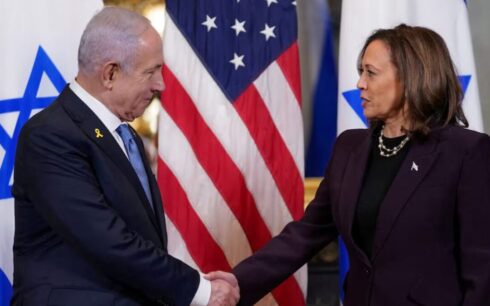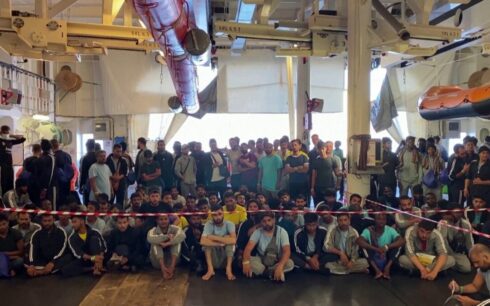Sweden joined NATO in Washington on Thursday, marking a significant shift in its national security policy two years after Russia’s invasion of Ukraine prompted a reevaluation of its stance. Swedish Prime Minister Ulf Kristersson completed the accession process by delivering the final documents to the U.S. government, finalizing Sweden’s membership in the military alliance.
“Good things come to those who wait,” said U.S. Secretary of State Antony Blinken, welcoming Sweden into NATO. Blinken highlighted the profound impact of Russia’s invasion on Swedish public opinion and the country’s realization of the potential broader threats posed by Russia.
The inclusion of Sweden and Finland, which shares a 1,340-kilometer (about 832-mile) border with Russia, represents NATO’s most significant expansion in decades and a strategic setback for Russian President Vladimir Putin, who has opposed the alliance’s enlargement.
“Today is a truly historic day. Sweden is now a member of NATO,” Kristersson stated. “We will defend freedom together with the countries closest to us – both in terms of geography, culture, and values.”
Sweden’s NATO membership ensures it benefits from the alliance’s collective defense guarantee, whereby an attack on one member is considered an attack on all. Hakan Yucel, a 54-year-old IT worker in Stockholm, expressed relief over the accession, believing it reduces the threat from Russia.
The Nordic country contributes advanced submarines and a significant fleet of domestically produced Gripen fighter jets to NATO forces, enhancing the alliance’s capabilities between the Atlantic and Baltic regions.
Russia has warned of “political and military-technical counter-measures” in response to Sweden’s NATO membership. “Joining NATO is really like buying insurance, at least as long as the United States is willing to be the insurance provider,” said Barbara Kunz, a researcher at the defense think tank SIPRI.
Sweden’s move to join NATO marks a departure from its over 200-year tradition of military nonalignment and neutrality in wartime. Following World War II, Sweden was known for its commitment to human rights and reduced military spending after the Soviet Union’s collapse in 1991. Despite initial reluctance, the significant geopolitical changes and growing tensions with Russia led Sweden to seek NATO membership alongside Finland.
While Finland became a NATO member last year, Sweden’s accession was delayed by Turkey and Hungary, both of which have maintained cordial relations with Russia. Turkey ratified Sweden’s application in January, and Hungary followed suit after a goodwill visit by Kristersson to Budapest on Feb. 23, culminating in a fighter jet agreement.





